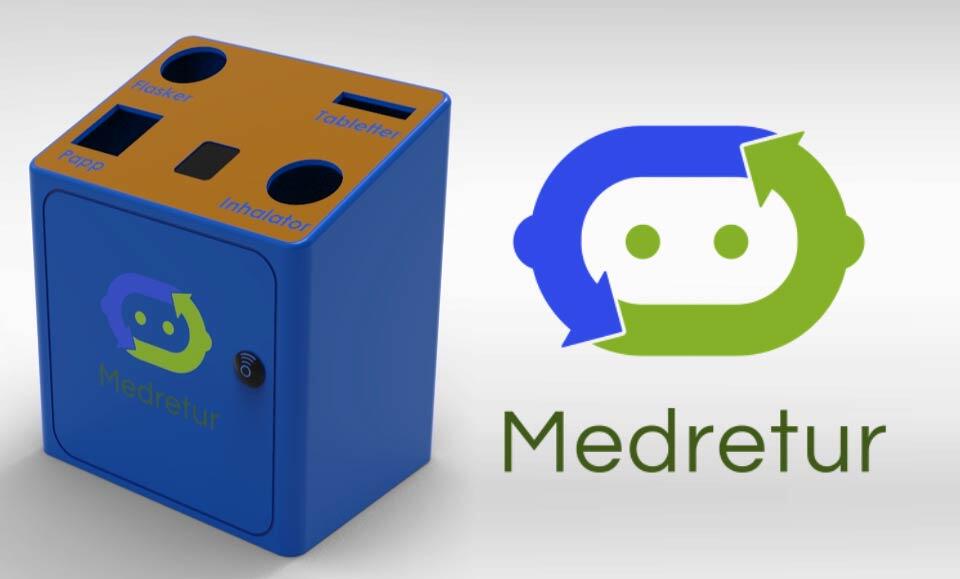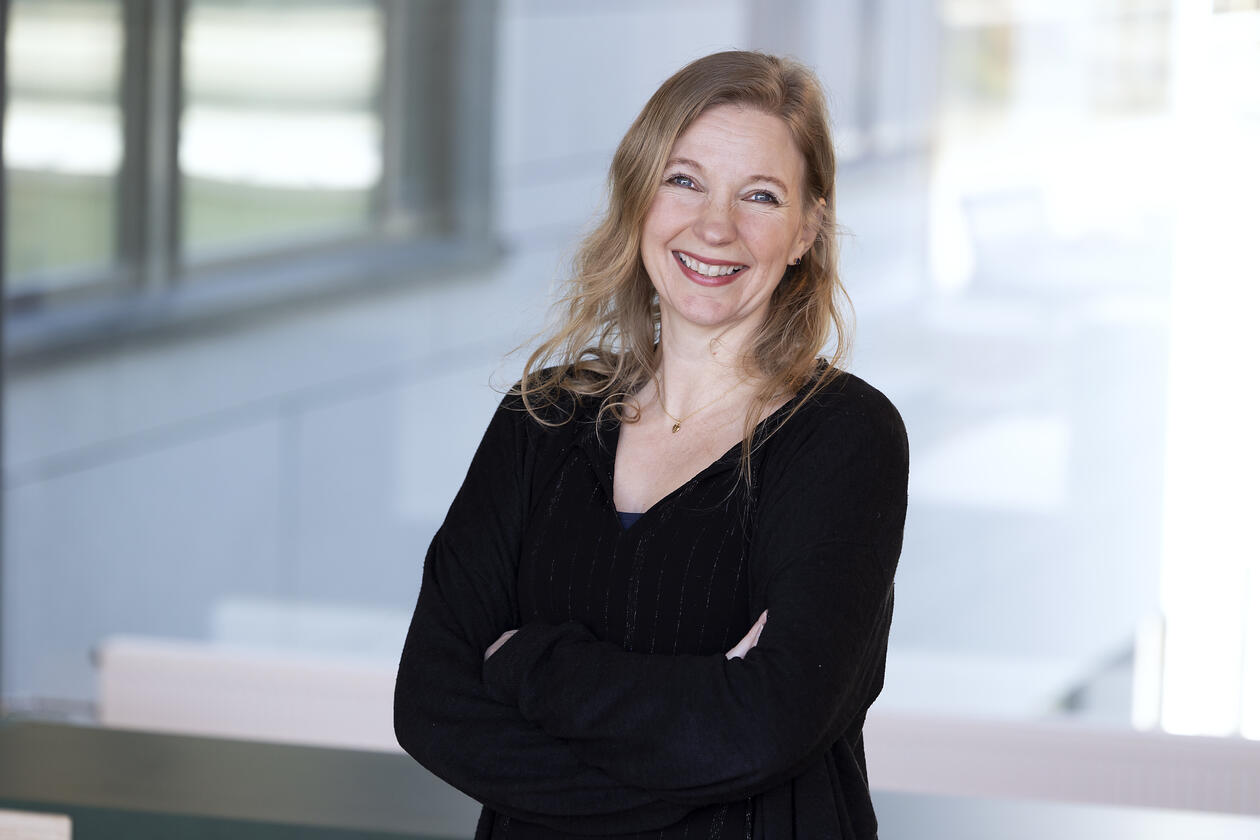TVEPS collaboration became a Startup
Students Ole Alexander and Elizabeth met in TVEPS. This was the start of further collaboration and the development of a sustainable solution for the return of medications.

Main content
Hundreds of tons of medication are thrown away in Norway every year, but only half of it ends up in pharmacies' return programs.
– The other half is thrown away at home in Norwegian households and can lead to emissions that harm the environment. We want to do something about this, says Ole Alexander Bakkevik, who is a master student at HVL.
The result is Returboks (in english return box) a waste unit that is designed to make it easier to ensure that unused and expired medications do not end up in nature.
From start-up idea to a million grant
It was after participating in TVEPS during the fall of 2020 that the startup idea really took off. A TVEPS group in Øygarden focused on sustainability, Bakkevik and connected with medical student Elisabeth Tran. The two kept in touch after TVEPS and eventually automation engineer Lars Birger Bergmål also joined the project. Recently, Kristine Broen was hired as the communication manager.
In 2021, the Alexander, Elisabeth and Lars were awarded a grant of 1 million norwegian kroner from the Norwegian Research Council - and the company Medretur was as a reality. The funds from the Research Council came through the STUD-ENT scheme, which is a scholarship program to promote student entrepreneurship. The experience of cross-professional collaboration was useful and educational in the application process.
– Through my education in medicine, I have contributed a perspective that links sustainability and health. This has given the project a more holistic focus beyond the business and technical aspects, says Tran.
– We have complemented each other and without participation in the interdisciplinary group in TVEPS, Medretur would not have become a reality, Bakkevik says.
The prototype of Returboks is ready for installation and testing in collaboration with the Hospital Pharmacy West Haugesund. The box, which has an intuitive sorting system for different medications, will both free time for the consumer and employee and ensure the safe and sustainable return of unused and expired medications, according to the founders.
– At the same time, we are developing Returboks 2.0, which will be a finished product ready for commercialization. This will be based on data and experiences related to the prototype we are testing, says Bakkevik.
Cross-sector collaboration
There has been a focus on innovation and entrepreneurship in higher education for many years. The next step is to establish more oppertunities for interdisciplinarity collaboration such as TVEPS, Bakkevik says. As a student in economics and administration, it was valuable to gain insight into the health sector through collaboration with students from health and care education.
– Collaboration across study programs will be the way to go for all education programs, - and preferably with a focus on sustainability. Through my participation in TVEPS, I gained more knowledge about the challenges in the sector related to sustainability, says Bakkevik, who is now pursuing his master degree in economics and innovation.
Tran, who is now working as a medical doctor, reminds us of the launch of the government's commitments to a sustainable health sector by 2050.
– Educational institutions can contribute by teaching about the impact of the health sector on climate and environment, including the impacts of medications and the pharmaceutical industry, Tran says.
Interdisciplinary collaboration to achieve the sustainability goals
Ane Johannessen, professor and leader of TVEPS, wants to build on the good experiences of 10 years of interprofessional collaborative learning in TVEPS and make the health professions more sustainable.
– Today, students are mainly trained in their own professions. Interprofessional collaboration is essential for creating good health services for the future, and we are therefore very happy to be able to offer training in interdisciplinary collaboration for more than 900 students a year, Johannessen says and adds;
– At the same time it is important to remember that although the TVEPS model is innovative, it is the students' competencies and creativity that constitute the resources. In TVEPS, we are very grateful to be able to serve as an idea and network incubator so that Medretur and similar startup companies can see the light of day.

